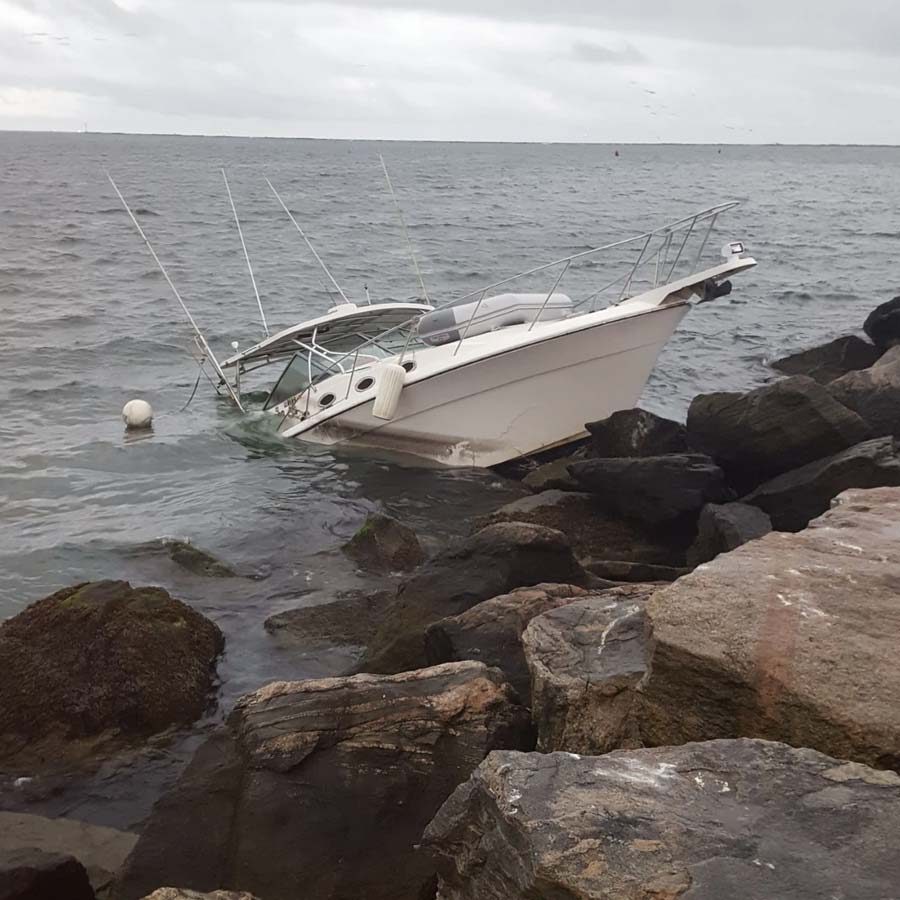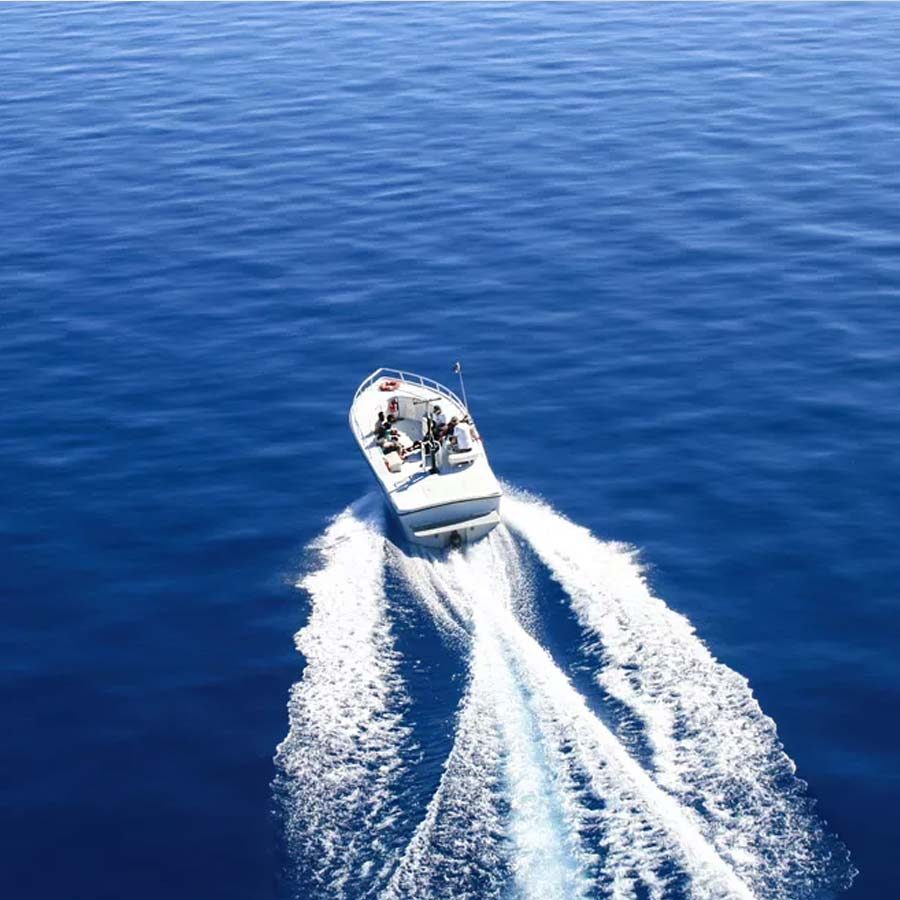We'll Get the Compensation You Deserve
Boating Accident Attorneys
Boating is a popular recreational activity in Georgia. Our boaters have access to over 400,000 acres of lakes and reservoirs
and can also choose to sail off the coast. But safety is a huge concern
whenever it comes to the public usage of a large body of water.
Boats generally do not come equipped with seat belts or other safety restraints, which can mean serious injuries in a crash. People who are ejected into deep water run the risk of drowning, even if they can swim. In addition, the party atmosphere around recreational boating means some people refuse to take safety seriously, exposing everyone around them to accidents caused by alcohol, inexperience, or bad decisions.
At McDonald & Cody, we navigate complex boating cases to pursue the compensation you deserve for your injuries and property damage.


the most common types of
boating accidents
There are dozens of types of water vessels, ranging from small personal water crafts (such as Jet Skis) to houseboats to mega cruise ships. Some of the common types of boat accidents are:
Collisions between vessels, or between a vessel and a rock or marina, can cause serious damage. The boat may flip, passengers may be thrown off the vessel, and the hull of the boat may be damaged. Collisions often happen when there are a lot of boats on the water, or when an inexperienced or inebriated operator is in control of the vessel.
On larger vessels, passengers might slip and fall on wet decks. On smaller watercraft, an operator or passenger might fall into the water if they strike an object, hit another craft, or lose control of their own craft.
A boat operator who’s distracted from the task at hand cannot respond to changing conditions in time to avoid an accident. Getting caught in a sudden storm, not looking out for potential hazards, and getting too close to other vessels can all cause an accident in the wrong circumstances.
Drowning accidents often happen when a passenger who did not plan to get into the water is thrown overboard. Depending on water conditions, that person may be unable to keep their head above water. This is especially true if they are not wearing a personal flotation device. In some cases, other people on the vessel may not realize someone fell overboard until it is too late to save them.
Boats need to be properly maintained to be operated safely. A vessel that isn’t properly maintained can develop rust or other issues with the hull, which can cause it to sink. Engine failure and other mechanical problems can leave the boat stranded far from shore. And standing water can lead to mildew or rot, which can cause occupants to slip.
FREE CASE EVALUATION
The trial attorneys at McDonald & Cody are available and ready to discuss your boating accident and help you determine next best steps.
Why McDonald & Cody?
The philosophy at McDonald & Cody, LLC is to provide maximum results, one client at a time. We are dedicated to our cases and strive for quick, full and maximum compensation.
NO COST UNLESS WE WIN!
We Spare No Expense!
We Keep Small Caseloads!










Boating Accident FAQs
How Long Do I Have to File a Boat Accident Lawsuit?
Generally, Georgia law gives you two years from the date of a boating accident to file a lawsuit. This is called the statute of limitations. If you miss this deadline, you will likely be unable to recover any compensation because your case can be dismissed as untimely.
Who May Be Held Liable in a Boating Accident?
Depending on how the boating accident occurred, there could be several parties who can be held liable for resulting losses, including:
- The operator of the boat – If the operator was impaired, distracted, speeding, or otherwise negligent, they could be liable for the accident.
- Passengers – Passengers can be held liable for a boating accident if they behaved dangerously, distracted the driver, or interfered with the safe operation of the boat.
- The manufacturer of the boat – The manufacturer of a boat can be held liable for an accident if it was caused by a mechanical or design defect of the vehicle.
- Dockworkers – If a boat is not properly maintained, the dockworkers responsible for keeping it in good order may be liable for a resulting accident.
What questions should I ask a boat accident lawyer?
Being injured in a boat accident causes a flurry of emotions, and it’s a stressful time. Learning how to file a claim to get compensated for your injuries can add to that stress; that’s why you should hire a boat accident lawyer to handle the process. Here are some questions to ask a boat accident lawyer before hiring them.
- What are your fees? The vast majority of personal injury lawyers work on a contingency fee basis. That means you don’t pay anything unless you receive money for your damages.
- If I lose, do I have to pay you for case-related costs? In some instances, you may be required to pay out-of-pocket fees even if you lose, so it’s essential to have that established before proceeding.
- Have you tried boating accident cases before? Not every personal injury lawyer has handled boating accidents. When a lawyer specializes in certain types of cases, it gives them unique insight into handling proceedings like familiarity with maritime rules and regulations that may have been broken.
- Do you have time for my case? A personal injury attorney needs to have enough time to devote to your case to handle it successfully. That’s why it’s helpful to go with a law firm with plenty of resources like McDonald & Cody.
- Will you take my case to trial? Not every case goes to trial, but you certainly want a lawyer that is willing to do so if it’s needed. At Morgan & Morgan, our trial attorneys are never shy to take your claim to trial if the insurance companies are not playing fair.
What Damages Are Available to Boating Accident Victims?
After a boating accident, you might have a legitimate personal injury claim for damages against at-fault parties. In Georgia, you can typically recover both economic and non-economic awards.
Economic damages are awarded to make up for the financial cost s of your accident. These damages can include what your injuries cost you today and what they’re likely to cost you in the future.
Economic damages can include:
- Medical bills and expenses
- Rehabilitation
- Nursing care
- Property damage
- Lost income and wages while you recover, and
- Temporary and/or permanent disability.
In receiving economic damages, you should be put back in the financial position you were in before you got hurt.
Non-economic damages are paid to compensate for the injuries and consequences of your accident that are hard to value. These injuries don’t come with a receipt. In fact, the value of non-economic damages can vary from person to person and from case to case.
These can include:
- Pain and suffering
- Emotional distress, including depression, anxiety, and PTSD
- Disfigurement and scarring
- Loss of consortium, and
- Loss of enjoyment of life.
These damages are often the source of arguments and disputes between parties. Our boating accident trial attorneys will get experts on the record to explain how your injuries will likely impact your life. This will make it more difficult for insurance companies and negligent parties to discount the trauma you’ve endured.
How Do I Get Started?
CALL US or SUBMIT ONLINE
Statute of limitations may apply so don't delay having your accident or injury claim evaluated by our team.
FREE CASE EVALUATION
Regardless of the type of injury you have, we may be able to help you get the compensation you deserve!
GET YOUR JUSTICE
Our experienced attorneys at McDonald & Cody will fight for the justice you deserve. You don't pay unless we win!
